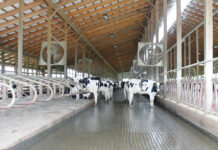Forget the past week’s winter weather. The calendar called for spring a couple of weeks ago so, fact is, it’s spring. That means it’s time to collect, then toss, the loose paper, used tea bags and unused facts that found a home in my tiny office over the long winter. All were saved for, well, to start conversations, I guess.
Investors
For example, if it’s a fact — and it is — that investors bought $35 billion of five-year U.S. Treasury Bonds March 28 that yielded just 2.245 percent, how can it be that the nation, as the radio ranters and the Potomac puffers have insisted all winter, is broke?
If the nation is as broke as the ranters and puffers rant and puff, bond yields would, in fact, be far higher to entice anyone to risk a penny on the nation’s economic future.
Instead, Uncle Sam sold buckets of 30-year Treasuries March 28 at a rather thin 4.75 percent interest rate. What, 2.2 percent for five years and 4.75 percent for 30 years doesn’t get your checkbook out of the drawer?
Gasbags
OK, but the fact is the world views both as fat hogs because the U.S. is a far better bet to be around long after the ranting gasbags of today are dead, gone and forgotten. I know, I know: you see “gasbag” and you immediately think “Congress.”
So, too, did our good friend, Daryll Ray, the director of the University of Tennessee’s Agricultural Policy Analysis Center, recently. Ray, who retains his Iowa farmboy politeness despite decades elsewhere, wrote a late-winter column (www.agpolicy.org/weekcol/556.html) that questions the fiscal and political sanity of a federal windfall awaiting farmers courtesy of 2011’s sky-high grain prices and a short-sighted Congress in 2008.
Commodities
First, Ray notes, is that despite today’s tall grain prices, “We have come to the point — contrary to our understanding of the purpose of commodity programs — that making (farm program) payments when they are not needed is just fine.”
That means, he explains, producers of farm bill “program” crops will pocket about $5 billion in “direct payments” because, needed or not, the law allows ’em.
Second, because the 2008 policy relies heavily on a public-private partnership of crop insurance based on current market prices, producers can literally “lock-in” today’s fat prices for enormous profits at taxpayers’ expense.
It’s a fact, he notes, that “(A)t least those who are willing to pay ‘their’ part of the premium” are in line for “some $14 billion (more) taken from the U.S. Treasury at a time when market prices are well above the cost of production.”
Budget cuts
Yep, despite all the pouting, spouting, spitting and hitting on Capitol Hill over billions in budget cuts for the current fiscal year and next, sharp-eyed producers will — not might, not could, not maybe, but will — whack Uncle Sam for billions in unbudgeted crop revenue payments in 2011.
Worse, continues Ray, “When — not if — prices fall and remain below the cost of production, these revenue insurance products guarantee a percentage of those below-cost prices.
In fact,” he adds, “revenue insurance… flips the safety net” to where it is today, “upside down.”
Here are some other conversation starters:
• While the nation remains mired in unemployment, the metro Washington, D.C. area added 57,000 jobs in 2010. It is now home to the lowest unemployment rate, 5.7 percent, in the nation.
• In 2008, Terry Stokes, the about-to-retire boss at the National Cattlemen’s Beef Association, pocketed $289,646 in salary and benefits.
• That same year, Forrest Roberts, the cowboy waiting to take the reins from Stokes in Jan. 2009, lassoed $150,000 for himself through an “employment agreement” with NCBA.
Take a second to think about that, then talk among yourselves.










